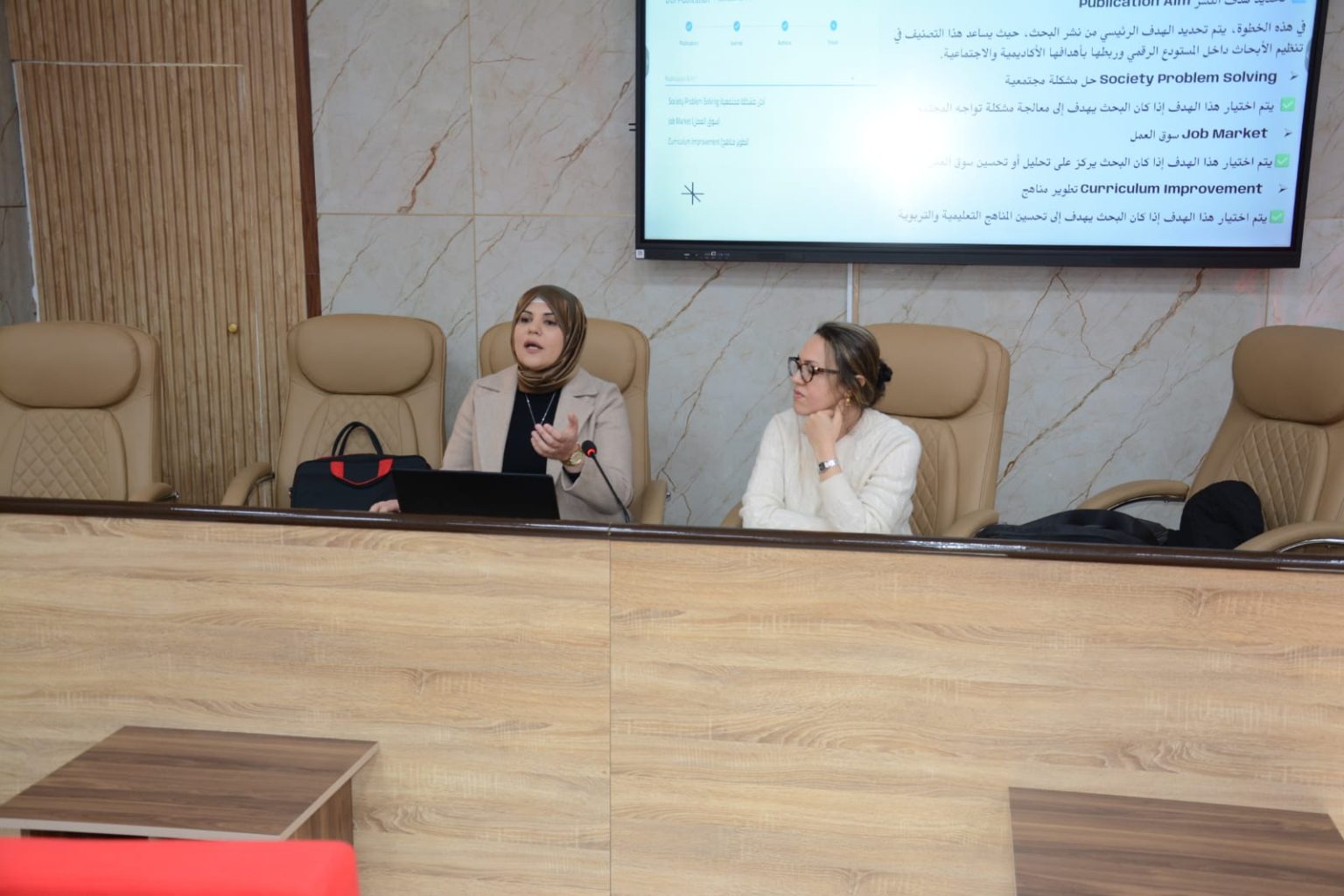The Continuing Education Unit at the College of Physical Education and Sports Sciences for Girls, University of Baghdad, held a training course entitled (How to publish scientific research for lecturers in the digital repository and link it to the Indigo system), presented by the two lecturers in Theoretical Sciences Departement, Asst. Lect. Inaam Ghaleb and Asst. Lect. Nibal Ahmed. This course aims to link academic activities to the Indigo system to document conferences, workshops and scientific seminars.
The two lecturers explained the concept of digital repositories, which are electronic systems designed to preserve, manage, organise and make available academic and research content, such as scientific research, university theses and published articles, which allows open access to and exchange of knowledge. Its importance also lies in preserving scientific production in an organised manner, enhancing open access to knowledge and research, supporting university classification, facilitating search and retrieval, and protecting intellectual property rights.
They also pointed out the benefits of archiving research in repositories: increasing dissemination and scientific impact, improving documentation and reference, enhancing research cooperation, integrating with global databases, and reducing the risk of data loss. At the same time, they explained the detailed steps for uploading scientific research to the repository by entering the official website via the special link, logging in via the instructor’s email, clicking on the publications list to upload research, as well as reviewing the methods of publishing research using digital document identifiers (DOL-ORCID-SCOPUS).
The course concluded with a set of recommendations, the most important of which is ensuring the accuracy of the data entered in the digital repository and Indico to ensure proper integration between the two systems. It also encouraged instructors to activate open access to their research to enhance the rate of scientific citation and increase academic dissemination.
This course achieves one of the sustainable development goals represented by the fourth goal, quality education.
